Related Research Articles
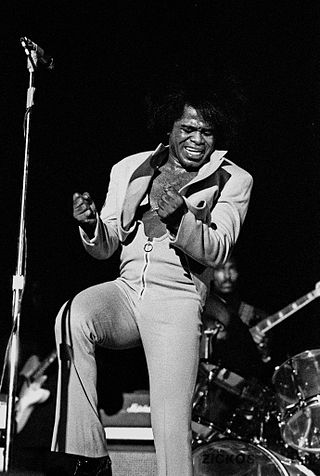
James Joseph Brown was an American singer, dancer and musician. The central progenitor of funk music and a major figure of 20th-century music, he is referred to by various honorific nicknames, among them "the Hardest-Working Man in Show Business", "Godfather of Soul", "Mr. Dynamite", and "Soul Brother No. 1". In a career that lasted more than 50 years, he influenced the development of several music genres. Brown was one of the first 10 inductees into the Rock and Roll Hall of Fame on January 23, 1986.
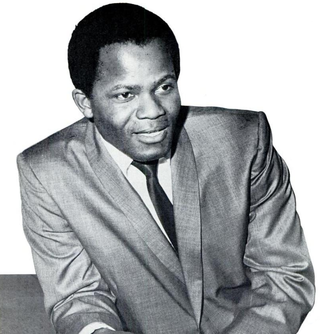
Yusuf Hazziez, known professionally as Joe Tex, was an American singer and musician who gained success in the 1960s and 1970s with his brand of Southern soul, which mixed the styles of funk, country, gospel, and rhythm and blues.
Bobby Howard Byrd was an American rhythm and blues, soul and funk singer, songwriter, musician, record producer, bandleader and talent dedicated, who played a part in the development of soul and funk music in association with James Brown.

This is a discography chronicling the musical career of James Brown. Brown joined Bobby Byrd's vocal group The Flames in 1953, first as a drummer, and then as leading front man. Later becoming The Famous Flames, they signed with Federal Records in 1956 and recorded their first hit single, "Please, Please, Please", which sold over a million copies.

"Please, Please, Please" is a rhythm and blues song performed by James Brown and the Famous Flames. Written by Brown and Johnny Terry and released as a single on Federal Records in 1956, it reached No. 6 on the R&B charts. The group's debut recording and first chart hit, it has come to be recognized as their signature song.

The Famous Flames were an American rhythm and blues, soul vocal group founded in Toccoa, Georgia, in 1953 by Bobby Byrd. James Brown first began his career as a member of the Famous Flames, emerging as the lead singer by the time of their first appearance in a professional recording, "Please, Please, Please", in 1956.
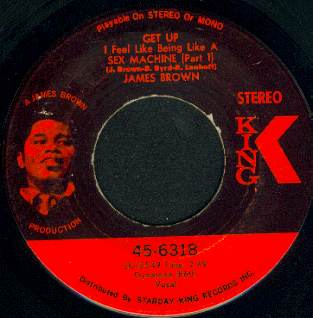
"Get Up Sex Machine" is a song recorded by James Brown with Bobby Byrd on backing vocals. Released as a two-part single in 1970, it was a no. 2 R&B hit and reached no. 15 on the Billboard Hot 100.
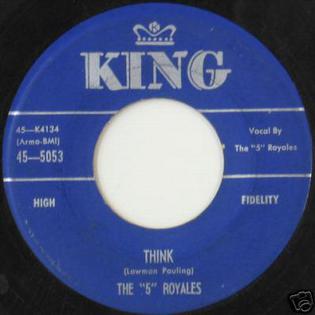
"Think" is a rhythm and blues song written by Lowman Pauling and originally recorded by his group The "5" Royales. Released as a single on King Records in 1957, it was a national hit and reached number nine on the U.S. R&B chart.

"Make It Funky" is a jam session recorded by James Brown with The J.B.'s. It was released as a two-part single in 1971, which reached No. 1 on the U.S. R&B chart and No. 22 on the U.S. Pop chart.
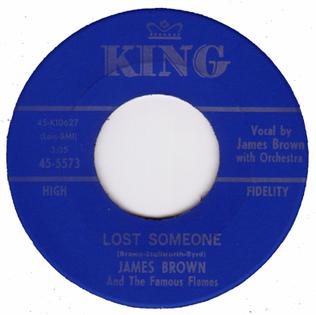
"Lost Someone" is a song recorded by James Brown in 1961. It was written by Brown and Famous Flames members Bobby Byrd and Baby Lloyd Stallworth. Like "Please, Please, Please" before it, the song's lyrics combine a lament for lost love with a plea for forgiveness. The single was a #2 R&B hit and reached #48 on the pop chart. According to Brown, "Lost Someone" is based on the chord changes of the Conway Twitty song "It's Only Make Believe". Although Brown's vocal group, The Famous Flames did not actually sing on this tune, two of them, Bobby Byrd, and "Baby Lloyd " Stallworth, co-wrote it with Brown, and Byrd plays organ on the record, making it, in effect, a James Brown/Famous Flames recording.

"Out of Sight" is a funk song recorded by James Brown in 1964. A twelve-bar blues written by Brown under the pseudonym "Ted Wright", the stuttering, staccato dance rhythms and blasting horn section riffs of its instrumental arrangement were an important evolutionary step in the development of funk music.
"Licking Stick – Licking Stick" is a song written by James Brown, Bobby Byrd, and Alfred "Pee Wee" Ellis and recorded by Brown as a two-part single in 1968. Byrd provides backing vocals on the song. It was the first stereo single release by King Records. The song was included on the album Say It Loud – I'm Black and I'm Proud.

Love, Power, Peace: Live at the Olympia, Paris, 1971 is a live album by James Brown. It is the only recording that documents one of his live performances with the original J.B.'s lineup featuring Bootsy and Catfish Collins. Love, Power, Peace was originally intended for a 1972 release as a vinyl triple album, but was cancelled after the key members of the original J.B.'s left Brown to join Parliament-Funkadelic. The album was finally released for the first time in 1992, edited down for a single compact disc; the full show, using Brown's original mixdown was later released in July 2014 on Sundazed Records.
"Oh Baby Don't You Weep" is a song recorded in 1964 by James Brown and The Famous Flames. Based upon the spiritual "Mary Don't You Weep", it was recorded as an extended-length track and released as the first two-part single of Brown's recording career. It peaked at #23 on the Billboard Hot 100 and at #4 on the Cash Box R&B Chart.. It was the last original song featuring the Famous Flames to chart, not counting the 1964 re-release of "Please, Please, Please" and the 1966 B-side release of the Live at the Apollo performance of "I'll Go Crazy".
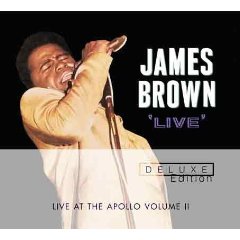
Live at the Apollo, Volume II is a 1968 live double album by James Brown and The Famous Flames, recorded in 1967 at the Apollo Theater in Harlem. It is a follow-up to Brown's 1963 recording, Live at the Apollo. It is best known for the long medley of "Let Yourself Go", "There Was a Time", and "I Feel All Right", followed by "Cold Sweat", which document the emergence of Brown's funk style. It peaked at #32 on the Billboard albums chart. Robert Christgau included the album in his "basic record library" for the 1950s and 1960s.

Roots of a Revolution is the first of several James Brown era overviews released by Polydor Records in the mid-1990s. Expanding on the 1984 double LP compilation of the same name it covers 1956 to 1963, but omits some of Brown's big hits from that time period, which can be found on Star Time. Most of the songs were recorded by Brown with his original vocal group, The Famous Flames, who received label credit on the LP version.
Robert J. Bennett, better known as Bobby Bennett, was an American singer, songwriter, choreographer, comedian, and musician, noted for being a member of the vocal group The Famous Flames from 1958 to 1968. During his time in the group, he served as a singer, songwriter, instrumentalist, comedian, emcee and dancer in the James Brown Revue. He was inducted into the Rock and Roll Hall of Fame as a member of The Famous Flames in 2012.
Lloyd Eugene Stallworth, also known as Baby Lloyd, was an American singer, songwriter, musician, recording artist, choreographer and dancer who was a member of the R&B vocal group The Famous Flames on King Records from 1958 to 1967. Stallworth was posthumously inducted into the Rock and Roll Hall of Fame in 2012 as a member of The Famous Flames.
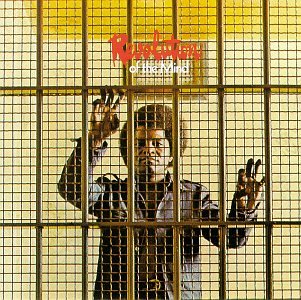
Revolution of the Mind: Live at the Apollo, Volume III is a live double album by James Brown released in 1971. As its subtitle suggests, it is Brown's third album recorded at the Apollo Theater, following the original Live at the Apollo (1963) and Live at the Apollo, Volume II (1968).
"I Guess I'll Have to Cry, Cry, Cry" is a song written and performed by James Brown. Released as a single in 1968, it charted #15 R&B and #55 Pop.
References
- ↑ White, Cliff (1991). "Discography". In Star Time (pp. 54–59) [CD booklet]. New York: PolyGram Records.